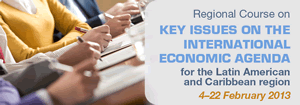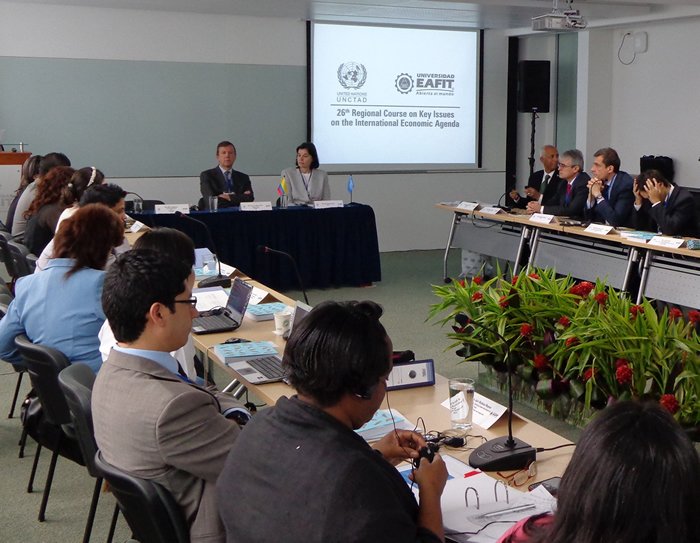 The 26th Regional Course on Key Issues on the International Economic Agenda opened at EAFIT University in Medellin, Colombia, on 4 February.
The 26th Regional Course on Key Issues on the International Economic Agenda opened at EAFIT University in Medellin, Colombia, on 4 February.
Eighteen policymakers and others are attending this regional course from 13 countries: Belize, Bolivia, Brazil, Costa Rica, Colombia, Cuba, Dominican Republic, Ecuador, El Salvador, Jamaica, Trinidad and Tobago, Paraguay, and Uruguay.
The course will conclude on 22 February.
The course is designed to provide an overview of economic policy issues of particular concern to developing countries. The aim is to assist government officials in designing appropriate policies that support and promote development.
The holding of the Medellin edition reflects a recent development in which multiple courses are held in the same venues, making planning and delivery of the programme more effective. The first such multi-year event was held in Oman in November of last year when the Oman Ministry of Commerce and Industry hosted a regional course for Western Asia.
Juan Luis Mejia Arango, Rector of EAFIT University, noted at the meeting that the university, a founding member of the UNCTAD Virtual Institute, was hosting the course for the third time since 2009. EAFIT has collaborated with UNCTAD in several trade-related capacity-building activities, and looks forward to the continuation of collaboration in the future, he said.
Genevieve Feraud, representing the Secretary-General of UNCTAD, said the interrelated nature of trade and development issues lies at the heart of UNCTAD's work and is the focus of this flagship course. She pointed out the mandate for the "Paragraph 166" course was established at UNCTAD's 10th quadrennial conference and has been renewed at each of the last three quadrennial conferences.
There is a broad consensus that technical assistance for trade-related policies among developing countries can strengthen their overall capacities to identify and pursue their own trade objectives and coordinate them well with their development objectives, Ms. Feraud said.



